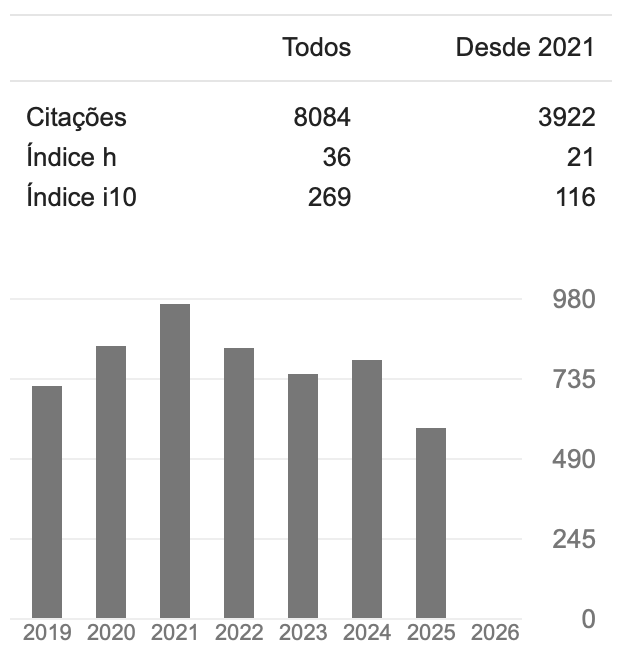Autonomy and sportspersonship orientation in the moral behavior of thletes
DOI:
https://doi.org/10.17765/2176-9206.2020v13n4p899-908Keywords:
Athletic performance, Autonomy, MoraleAbstract
This study proposes an Explanatory Moral Model in sport, verifying the perception of autonomy and its influence on pro and antisocial behavior in athletes, mediated by sportspersonship orientation. 180 athletes from the southern region of Brazil of both genders participating in national and international competitions were evaluated. The instruments used were: Basic Sport Needs Satisfaction Scale (BNSSS); Multidimensional Sportspersonship Orientation Scale (MSOS); and Prosocial and Antisocial Behavior in Sport Scale (PABSS). Data were analyzed using a Structural Equation Model. The athletes showed high values of autonomy, independent judgment, respect for the rules, social conventions and prosocial behaviors, with low values of antisocial behaviors. The tested structural equation model demonstrates that sportspersonship orientation can be a mediating variable between the relationship of autonomy and especially prosocial behaviors. It is concluded that a postconventional morality in sport associated with an autonomic movement goes through a positive orientation of sports practice.Downloads
References
Ciampa, A. C. A. Estória do Severino e a história da Severina: um ensaio de psicologia social. 1 ed. São Paulo: Brasiliense; 2009.
Marinho, V. O Esporte pode tudo. 1 ed. São Paulo: Cortez; 2009.
Corrion, K., Long, T., Smith, A. L. “It’s Not My Fault; It’s Not Serious”: Athlete Accounts of Moral Disengagement in Competitive Sport. The Sport Psychologist. 2009; 23(3):388-404.
Bonin, L. F. R. Indivíduo, cultura e sociedade. In: Strey, M. N., et al. Psicologia social contemporânea. Petrópolis: Vozes; 1998.
Berger, P. L. E Luckmann, T. A construção social da realidade: tratado de sociologia do conhecimento. 34 ed. Petrópolis: Vozes; 2012.
Habermas, J. Para a reconstrução do materialismo histórico. Tradução de Carlos Nelson Coutinho. 2. ed. São Paulo: Brasiliense; 1990.
Côté, J. The influence of the family in the development of talent in sport. The Sport Psychologist. 1999; 13(1):395-417.
Weiss, M., Bredemeier, B. J. L. Moral development in sport. Exercise and Sport Science Reviews. 1990; 18(1):331-78.
Koller, S. H.; Bernardes, N. M. G. Desenvolvimento moral pró-social: semelhanças e diferenças entre os modelos teóricos de Eisenberg e Kohlberg. Estudos de Psicologia. 1997; 2(2):223-62.
Kohlberg, L. Essays on moral development: the philosophy of moral development. San Francisco. Harper & Row. 2014; 10(2)404-6.
Kohlberg, L. Development of moral character and moral ideology. In M. L. Hoffman & L. W. Hoffman (eds.), Review of Child Development Research, 1964; (1):212-321.
Corbière, M.; Larivière, N. Méthodes qualitatives, quantitatives et mixtes: dans la recherché en sciences humaines, sociales et de la santé. 1 ed. French Edition; 2014.
Ng, J. Y. Y.; Lonsdale, C.; Hodge, K. The Basic Needs Satisfaction in Sport Scale (BNSSS): instrument development and initial validity evidence. Psychology of Sport and Exercise. 2011; 12(3):257-64.
Boardley, I. D., Kavussanu, M. The influence of social variables and moral disengagement on prosocial and antisocial behaviours in field hockey and netball. Journal of Sports Sciences, 2009; 27 (8):843-54.
Cohen, J. Statistical power analysis for the behavioral sciences. 2 ed. Second Edition; 1988.
Byrne, B. M. Structural equation modelling with AMOS: Basic concepts, applications, and programming 2 ed. New York: Routledge; 2013.
Marôco, J. Análise de Equações Estruturais: Fundamentos teóricos, Software e Aplicações. Pêro Pinheiro: Report Number; 2010.
Bataglia, P. U. R. A. Validação do Teste de Juízo Moral (MJT) para diferentes culturas: o caso brasileiro. Psicologia Reflexão e Crítica. 2010; 23(1):83-91.
Habermas, J. A. Ética da discussão e a questão da verdade. 3 ed. São Paulo: WMF Martins Fontes; 2013.
Kavussanu, M. Motivational predictors of prosocial and antisocial behaviour in football. Journal of Sports Sciences. 2006; 24 (6): 575-588.
Ciampa, A. C. Políticas de identidade e identidades políticas. In. Dunker, C. I. L. & Passos, M. C. (orgs.). Uma psicologia que se interroga, ensaios. 1 ed. São Paulo: Edicon; 2002.
Mouratidou, K. Determinants of athletes’ moral competence: the role of demographic characteristics and sport - related perceptions. 2017; 20(7):802-15.
Kavussanu, M. Toward an understanding of transgressive behavior in sport: Progress and prospects. Psychology of Sport and Exercise, 2019, 42:33-9.
Jalleh, G., Donovan, R. J., Jobling, I. Predicting attitude towards performance enhancing substance use: a comprehensive test of the sport drug control model with elite Australian athletes. Journal of Science & Medicine in Sport. 2014; 17 (6):574-9.
Additional Files
Published
How to Cite
Issue
Section
License
A submissão de originais para a revista Saúde e Pesquisa implica na transferência da Carta Concessão de Direitos Autorais, pelos autores, dos direitos de publicação digital para a revista após serem informados do aceite de publicação.A Secretaria Editorial irá fornecer da um modelo de Carta de Concessão de Direitos Autorais, indicando o cumprimento integral de princípios éticos e legislação específica. Os direitos autorais dos artigos publicados nesta revista são de direito do autor, com direitos da revista sobre a primeira publicação. Os autores somente poderão utilizar os mesmos resultados em outras publicações, indicando claramente a revista Saúde e Pesquisa como o meio da publicação original. Em virtude de tratar-se de um periódico de acesso aberto, é permitido o uso gratuito dos artigos, principalmente em aplicações educacionais e científicas, desde que citada a fonte. A Saúde e Pesquisa adota a licença Creative Commons Attribution 4.0 International.
A revista se reserva o direito de efetuar, nos originais, alterações de ordem normativa, ortográfica e gramatical, com vistas a manter o padrão culto da língua e a credibilidade do veículo. Respeitará, no entanto, o estilo de escrever dos autores. Alterações, correções ou sugestões de ordem conceitual serão encaminhadas aos autores, quando necessário. Nesses casos, os artigos, depois de adequados, deverão ser submetidos a nova apreciação. As opiniões emitidas pelos autores dos artigos são de sua exclusiva responsabilidade.

















